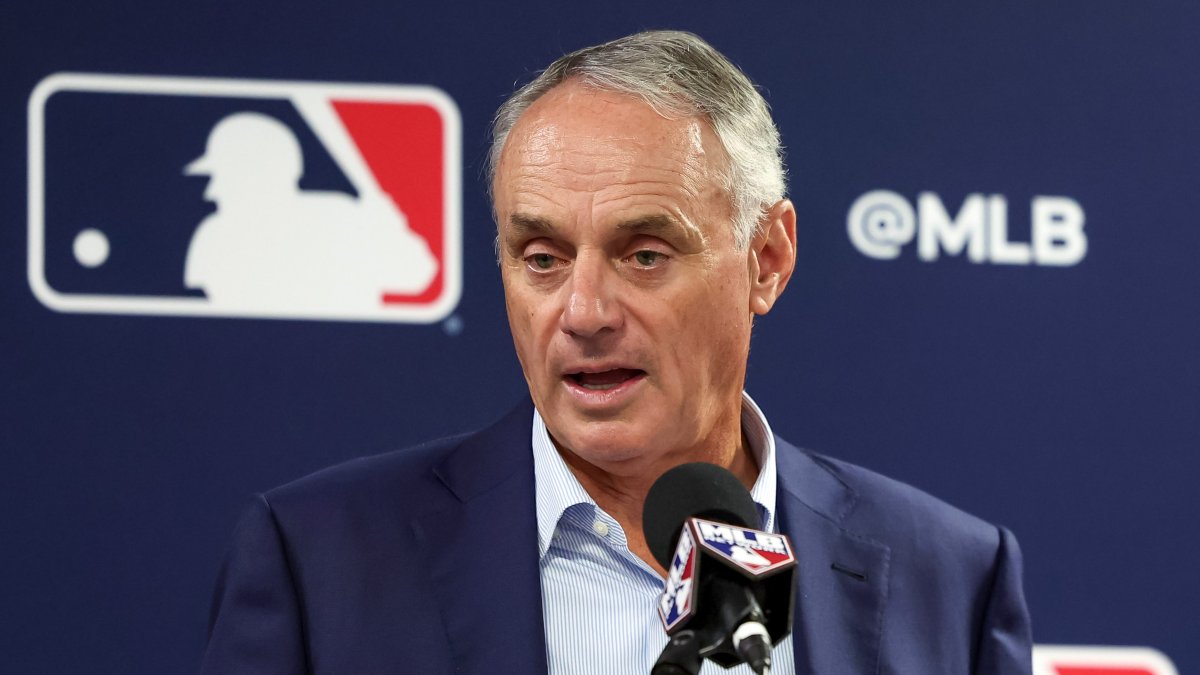Major League Baseball commissioner Rob Manfred said there is still a chance that major league players will attend the 2028 Los Angeles Olympics, but many obstacles remain before Shohei Ohtani, Aaron Judge and Bryce Harper have a shot at a gold medal.
Baseball was an official event from 1992 to 2008, but was later removed from the list until the 2021 Tokyo Olympics, and MLB only allowed players who were not on the 40-man roster to participate. Still, many promising players were blocked from participating by their teams.
Baseball was not included in this year’s Paris Olympics, but will return in 2028. LA 2028 chairman Casey Wasserman gave a presentation to MLB owners in February on how major leaguers could get involved.
“I spoke with Casey last week and we’ve been talking about what we can do, what that might look like specifically, what compromises we might have to make in terms of the season, so I’m keeping an open mind on that,” Manfred told the Baseball Writers’ Association of America.
“I think the thing I found most compelling about what Casey said was, forget about what the long-term outcome of Olympic baseball is, because when you’re in Paris, everybody knows the stadium isn’t going to be built,” Manfred added. “But when you’re in Los Angeles, you focus on Los Angeles. This is an opportunity we have to think about.”
With a national team strengthened after Nippon Professional Baseball suspended its season, Japan defeated the United States in the gold medal game at the 2021 Olympics.
Who will pay the insurance premiums for major leaguers will be an issue. Also, many top players, especially starting pitchers, were prevented from participating in the World Baseball Classic, organized by MLB and the Major League Baseball Players Association. In last year’s WBC, Mets closer Edwin Diaz ruptured his right patellar tendon while celebrating a victory against Puerto Rico and missed the 2023 season.
“The feedback we’ve gotten from athletes thus far has been that they’re eager to participate if the opportunity arises,” Tony Clark, the association’s president, told the BBWAA, speaking before Manfred, “so I would anticipate, at least at this point, that we’ll be having conversations about it based on the feedback that we get. But I think that’s going to be an important discussion, not just for 2028, but beyond 2028, because if there’s an opportunity to do it in 2028, that could potentially lay the foundation for it to become more consistent in the Olympics going forward.”

